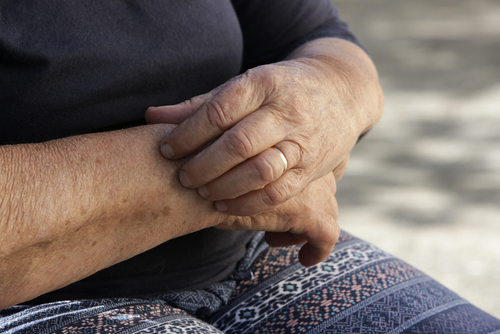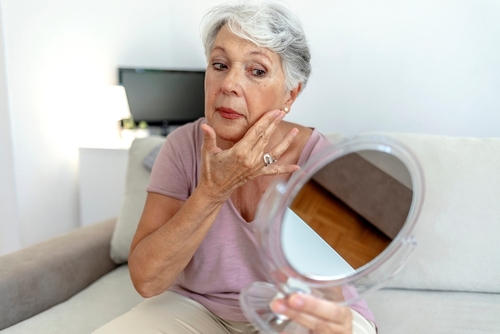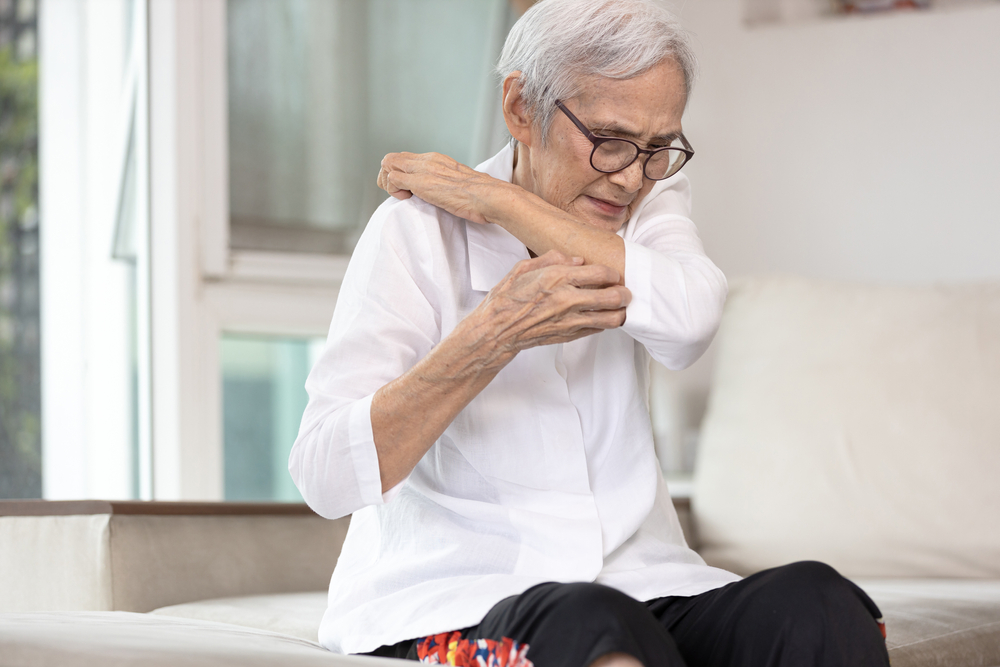Psoriasis at Home Care
Category:

Psoriasis in elderly people is not only a medical problem, but elderly onset psoriasis can be a constant source of discomfort and anxiety for seniors.
If you have psoriasis, at-home care will be easier if you know what you’re dealing with after being diagnosed with the disease.
What is psoriasis?
Psoriasis is a chronic inflammatory disease that causes skin cells to multiply 10 times faster than normal. As skin cells build up, red, itchy, scaly patches are formed on the scalp, knees, elbows, and trunk. In some cases, the condition affects the nails and joints as well.
Psoriasis and dementia are both conditions often associated with the aging population, but is there a link between the two?
A study published in the Journal of the American of Dermatology studied the association of inflammatory conditions such as psoriasis and the incidence of dementia. The study indicated that elderly adults with psoriasis were 1.43 times more likely to suffer from dementia than those who did not have psoriasis.
What causes late-onset psoriasis?
Genetics may be a factor in developing psoriasis, but late-onset psoriasis is less likely to have a hereditary element. Medicines such as beta-blockers have been linked to the development of late-onset psoriasis. Diseases such as diabetes and high blood pressure can increase your risk of developing the condition as you age.
What causes psoriasis to get worse?
Excessive stress can cause a psoriasis outbreak, especially if it’s ongoing. A change in weather, such as warm weather to cold, dry air, will often cause psoriasis to develop or worsen. Injuries, illnesses (such as a strep infection), and hormonal changes are all factors that can cause late-onset psoriasis to worsen.
What happens if you leave psoriasis untreated?
Without treatment, psoriasis can severely affect your health. The itching and scaling will worsen, causing pain and embarrassment. Scaling and inflammation of the skin may be an indicator of inflammation occurring inside the body. Other more serious diseases can develop if psoriasis goes untreated at home. Health, psoriasis, and quality of life will worsen without prompt diagnosis and treatment.
What is the life expectancy with psoriasis?
Psoriasis is not considered a fatal disease, but it can contribute to the development of other diseases and comorbidities that shorten the lifespan. So, to answer the question, psoriasis and life expectancy reduction can be linked if psoriasis is untreated and leads to the development of cardiovascular disease, diabetes, inflammatory bowel disease, or even severe depression.
How to treat psoriasis and manage flare-ups.
There is no cure for psoriasis, but these tips can help with symptoms and flare-ups.
- Use topical moisturizing and steroid creams on the skin to help with inflammation and relieve itching.
- Talk to your doctor about immunosuppressants, especially for sensitive areas like the face or genitals.
- Ask your dermatologist about the use of light therapy.
- Use soaps and shampoos recommended for psoriasis.
- Reduce alcohol consumption.
- Stop smoking.
There are also natural products, such as herbs and supplements that may be helpful in treating the symptoms.
Your doctor can help you decide which course of treatment will be the best for your situation. The most important thing to remember is to treat psoriasis promptly and consistently so it doesn’t lead to other conditions that are more difficult to manage.
Subscribe
Date: December 7, 2022
Category:


